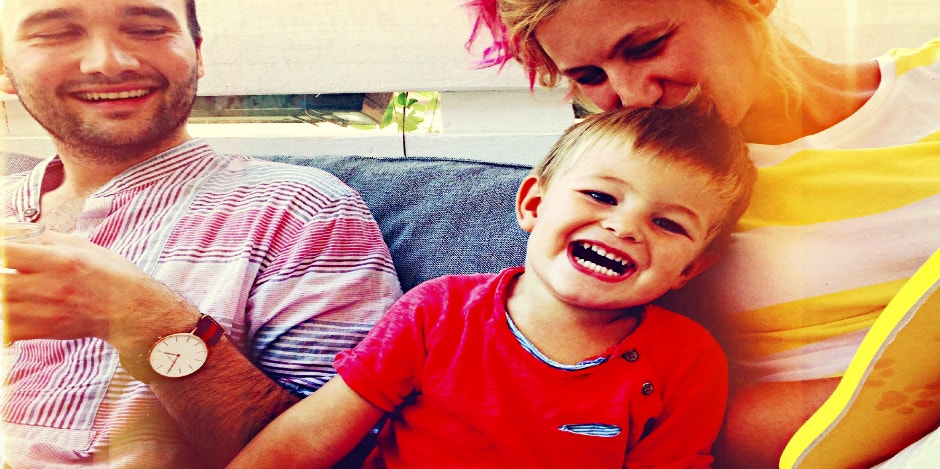How To Start Dating Again Without Making Your Kids Feel HORRIBLE
Is it OK to put your own happiness FIRST?
 iStock
iStock Dating when you have kids can be very tricky. You don’t want to risk making a mistake that will damage the relationship that you have with your kids and the way that they will perceive and view relationships when they become adults.
Many people struggle with how to navigate these waters and wonder whether or not they should put their kids second while dating and focus on themselves.
The best strategy is to make both your kids and dating a priority. It requires a bit of multitasking, but, hey, you’re a parent. You’re used to it!
Use the tips below to help you find that balance once you're ready to start dating with kids:
1. Make your own happiness a priority.
When you are dating and have kids, you shouldn’t just be looking for a good addition to your family and someone who will be a good parent. You should be looking for someone who makes you happy.
Kids are more perceptive than many people give them credit for and they can usually sense when their parent is unhappy or off balance. They want you to be happy just as much as you want happiness for them.
Finding happiness in a relationship for yourself may actually improve the relationship that you have with your children.
2. Take off your parenting hat for a few hours.
Too much of a good thing is never a good idea. Although you love your kids and cherish them, you do need time away from them.
Dating may be your outlet to get a bit of space from the stress and responsibility of parenting. Don’t spend the date talking about your kids.
3. See how things pan out as you go — you don't have to plan EVERYTHING.
Judge each situation as it happens. Don’t sabotage something that may turn out to be good for fear of what may go wrong.
Many people end up jumping ship before they see how a relationship turns out, in fear that they're not prioritizing their kids enough.
4. Slowly integrate your dating life into your home life.
When you begin dating again as a parent, there’s always the fear that you will introduce your kids to someone too soon and cause them to get attached to people who may not be sticking around for the long term. That's a legitimate fear.
You may introduce someone into your child’s life that doesn’t end up staying in your life for the long haul and it may be upsetting for them. However, if you want to see how they will fit into your lives then you have to take that risk.
5. Predict their reactions and take note of certain behaviors.
You want to make sure that you are following your heart, but you also need to think about the needs of your children and how they feel about you bringing someone new into their life.
Some children will welcome new people and openly get attached very easily. However, there are other children who will regard your new companion with jealousy or even suspicion.
There is a positive and a negative side to this. On the positive side, they could be seeing something that you don’t. Their perceptiveness often allows children to judge people’s behavior with clarity that you may not have.
But, on the other side, they could be reacting negatively because they resent the void of their biological parents not being involved romantically.
Either way, you shouldn’t dismiss what they have to say about your new companion. You can’t keep these sides of your life compartmentalized forever. Eventually, they’ll all blend together and you should work towards the most positive outcome for everyone involved.
There’s no easy answer to having kids and dating. Your kids should always be a priority, but so should your happiness.
When you begin to see someone new, try not to over analyze how things will play out. You should trust your instincts and pay attention to the way that you feel about your companion and to how your child feels about them.
Move slowly and carefully. You aren’t just making decisions for yourself but at the same time, you don’t ever want to lose who you are in the title of being a parent.
You are a fully rounded person that needs a life and companionship outside of your role as a parent and caregiver.
